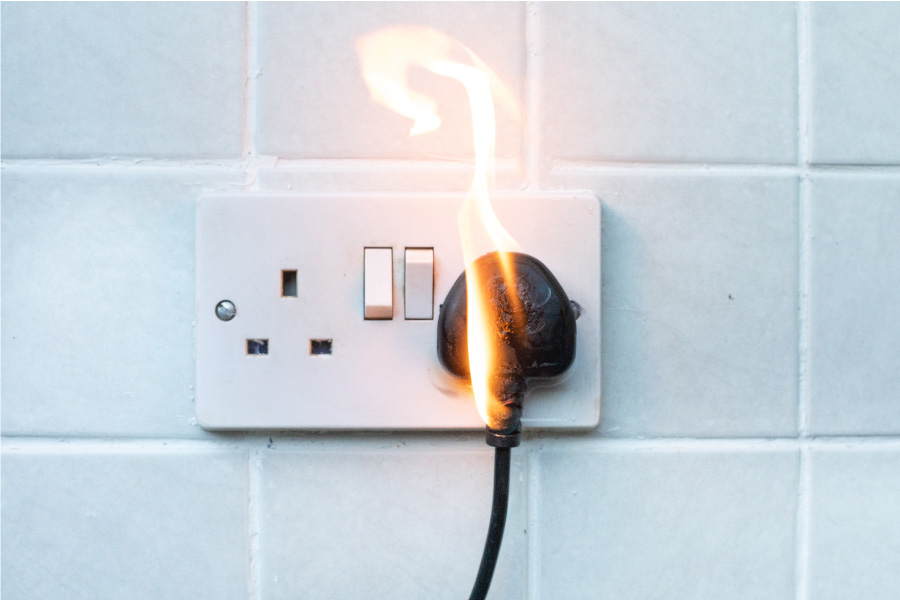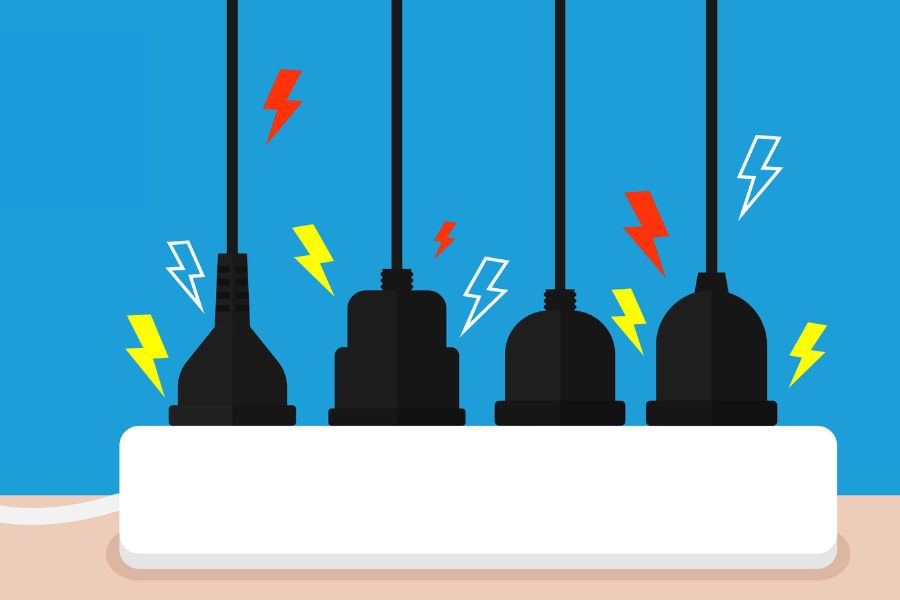Electrical advice
How to prevent electrical fires at home
24 Jul 2024 • 4 minutes


Whether through faulty wiring, damage through wear and tear or simply an accident at home - electrical fires need to be considered a high risk. That’s why we’ve put together this guide to help you understand the dangers and help you prevent electrical fires at home.
Electrical fires can occur for a number of reasons that can compromise the safety of residential, commercial or industrial buildings. This is due to their potential to rapidly spread and cause extensive damage.
Let’s take a closer look at some of the most common causes of electrical fires.
Over time, electrical wires can become worn, frayed or loose which can cause wiring to overheat and slowly burn away.
Faulty or poorly maintained electrical appliances and equipment can result in a fire.
Devices that draw significant amounts of power, such as kitchen appliances, heating and air conditioning units, or other big devices can be a bigger risk when not looked after properly.

If you plug too many devices into a single circuit you can overload the circuit. This can mean you exceed the circuit's capacity and generate high amounts of heat and ignite nearby combustible materials.
Replacing permanent wiring with poorly installed extension cords, or by connecting multiple appliances to a single power strip can result in a circuit overload and create a fire hazard.
If you’ve got loose connections, damaged components, frayed cords or incorrect wiring - this can cause overheating and trigger fires.
Faulty light bulbs, lamps or other light fittings can give out excess heat, which can result in a fire. Using bulbs that go over the recommended wattage that the appliance needs can increase the risk of this.
Fires can occur if faulty wires or electrical tools are situated near combustible materials.
Electrical systems can experience short circuits, electrical arcs and other faults that can result in electrical fires.
We have 9 pointers from our Home Experts to help you avoid an electrical fire at home:
Electrical fires can be put out with a Class C fire extinguisher so it’s always useful to have one in the home.
If you’re unable to, or don’t feel comfortable safely putting out an electrical fire, then you should call the emergency services on 999 immediately.
Obviously, all circumstances are different, and the best way to deal with a situation can vary depending on what’s happened. If you have any doubt at all then we recommend that you call a professional.
Firefighters are fully trained and equipped to deal with emergencies like this safely. Where possible you should disconnect the electricity before they arrive, if it’s safe to do so. If not then you should evacuate your home immediately.
Electrical emergencies can occur at home at any time. You can avoid being caught out by adding electrical cover to help protect your home and add peace of mind,
Also, if you experience an electrical incident that requires a repair, then please use our one-off repairs service. One of our Home Experts can get you up and running again as quickly as possible.
Our help & advice articles cover Plumbing, Home heating, Electrical, Energy-saving and Home maintenance.